Now on its fourth year, the Dr. Lucio C. Tan Legacy Forest Project has covered a vast area in restoring degraded forests and protecting the existing ones under the Foundation’s Rebuilding the Community and the Environment Program.
The Dr. Lucio C. Tan Legacy Forest Project was launched in 2014 with the goal of mitigating the effects of climate change and providing livelihood opportunities to many unemployed residents in reforestation sites initially at the UPLB Land Grant in Laguna and Quezon. Since that year, the project has expanded to cover a bigger area in Carranglan, Nueva Ecija in partnership with the Department of Environment and Natural Resources.
The Dr. Lucio C. Tan Legacy Forest Project was launched in 2014 with the goal of mitigating the effects of climate change and providing livelihood opportunities to many unemployed residents in reforestation sites initially at the UPLB Land Grant in Laguna and Quezon. Since that year, the project has expanded to cover a bigger area in Carranglan, Nueva Ecija in partnership with the Department of Environment and Natural Resources.
During the first year, TYKFI potted over a million seedlings and planted 120,000 seedlings of various species on 600 hectares of forest at the UP Land Grant in Quezon and Laguna. In 2015, the Legacy Forest farmers were able to grow and nurture a total of 635,660 in Sta. Fe, Nueva Vizcaya and Carranglan, Nueva Ecija. During the planting period, the farmers planted on 206 hectares of land for fuelwood and 73 hectares of land was used for timber for a total of 279 hectares in Carranglan, Nueva Ecija. Among the wood species planted were mangium, ipil-ipil, narra, and anchoan dilau.
Today, most of the trees grown in the rain-rich Laguna-Quezon areas are full grown and on their way to fully reforest the Project sites while those in Nueva Ecija which are faced with a harsher climate of extreme heat during summer have a higher mortality rate and need extra nurturing. The good news in the 930-hectare Project site, however, is the improved Biodiversity Index Rate of the forested area based on a study of various flora and fauna by the Nueva Vizcaya State University (NVSU) which was commissioned by the Foundation last year.
| Sustainable Livelihood for Farmers A number of farmers in the Nueva Ecija project site are indigenous people from the depressed areas of the region who are assigned to plant trees in the forest areas in Barangay R.A. Padilla or to plant crops in the model agro-forestry farm in Barangay Digdig. To date, hundreds of farmers and their families have benefitted from the various income-generating activities conducted by the Foundation under the LCT Legacy Forest Project. Efrina Lamsis, 45, says she and her relatives and townmates who had no previous source of income were fortunate to be invited to work with the Project: “Ang asawa ko lang ang nagtatanim ng palay para mayroon kaming kainin sa buong taon. (Only my husband planted rice so we would have something to eat.)” In 2015, Lamsis, along with her son and son-in-law, began to work for different areas of the Project. Lamsis is now assigned at the model chili farm; her son is stationed at one of the reforestation outposts while her son-in-law has been assigned with the Foundation’s general service group. She is very grateful to the Foundation for the livelihood opportunities and all the other benefits the farmers and workers enjoy since the Project began. The Lamsis family has so far acquired most of the household appliances they need and improved their homes. They are currently amortizing for the motorcycle which they use to go to work. Meanwhile, Ferdinand Mercado, the 48-year old assistant supervisor in the reforestation planting site, believes the Foundation’s presence in Carranglan has helped him greatly to keep his children in school. “Dahil po sa kabuhayan na ibinigay ng Foundation ng tatlong taon, nakapagpaaral ako ng mga anak ko sa kolehiyo. Edukasyon lang po ang aking maiiwan sa aking mga anak.” (With the livelihood that the Foundation gave me for the last three years, I was able to send my three children to college. Education is the only legacy I will leave my children.) Mercado’s second child already finished a course in Information Technology and is now employed with a government agency. He says that his two other children are able to attend college due to a stable income from his work with the Foundation and earnings from his wife’s sari-sari store. It is noteworthy that the Project did not only help these hardworking individuals earn money to alleviate their poverty and be able to buy their basic necessities but also to fulfill part of their lifelong dreams that extend to their offsprings. |
TYKFI’s Agroforestry: Model Farm
In 2016, two aspects of the program were incorporated by the Foundation into one. In September, Tan Yan Kee Foundation, Inc. began the first phase of the Agroforestry Livelihood Training Program wherein unemployed farmers were trained in different scientific ways of producing various vegetable crops and ornamental plants in the TYKFI nurseries and Model Farm in Carranglan, Nueva Ecija.
Through the LCT Agroforestry Project, the farmers can earn an appropriate living. The farmers practice excellence in preventing wildfires, in the development of resilient forest ecosystems, as well as in organic farming. Hence, growing with the environment means that this man and nature integrated approach results in an economic, social, and environmental health in one community at a time.
The Foundation’s agroforestry project also serves as an outdoor laboratory where students and farmers alike learn practical skills and where knowledge comes through in a full circle between the classroom and the outdoor environment. Knowledge is gained, shared, and enhanced in the following areas: in the skills needed for the restoration of degraded sloping lands, in environmental awareness such as the importance of watershed management and forest conservation, and in investing in and protecting the environment to benefit present and future generations.
Cutting edge technology is also at the heart of the TYKFI’s Agroforestry Project’s quest for food security for our planters and the other publics we serve. Amidst Carranglan, Nueva Ecija’s little to no biophysical potential, the Foundation assembles carefully analyzed practices like short-term multi-crop farming which is most appropriate to turning the given harsh environment into one that is ideal for productivity and therefore food security.
Knowing the many obstacles that common farmers face, the Foundation has also made sure that knowledge, skills, and a system (that connects together technology, land use, and consumer marketing) is in place and coalesces to ensure that the farmers experience first-hand and learn from a recoverable-farm-business model.
The Foundation’s model farm engages only in healthy and accountable farming practices. Bringing healthy produce to the plate goes back not only to proper technology being employed, but also to a pure love and passion for the farm work.

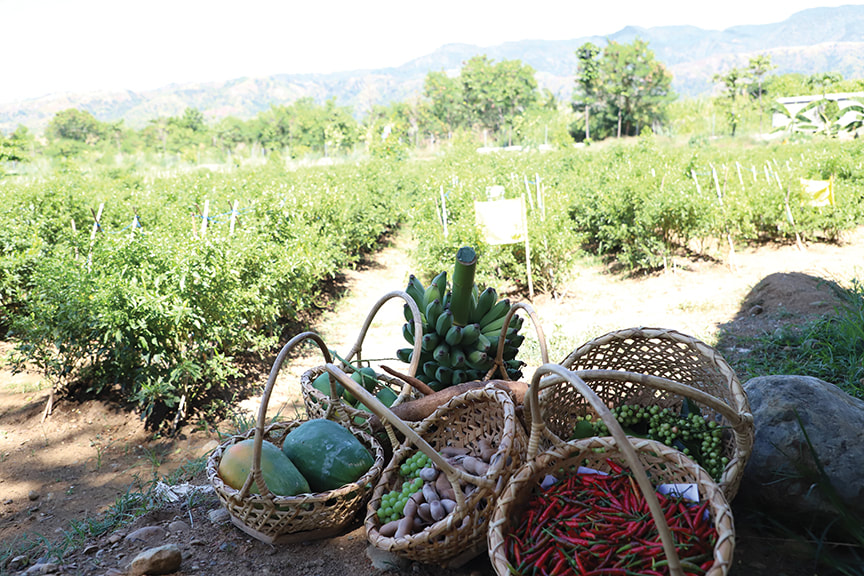
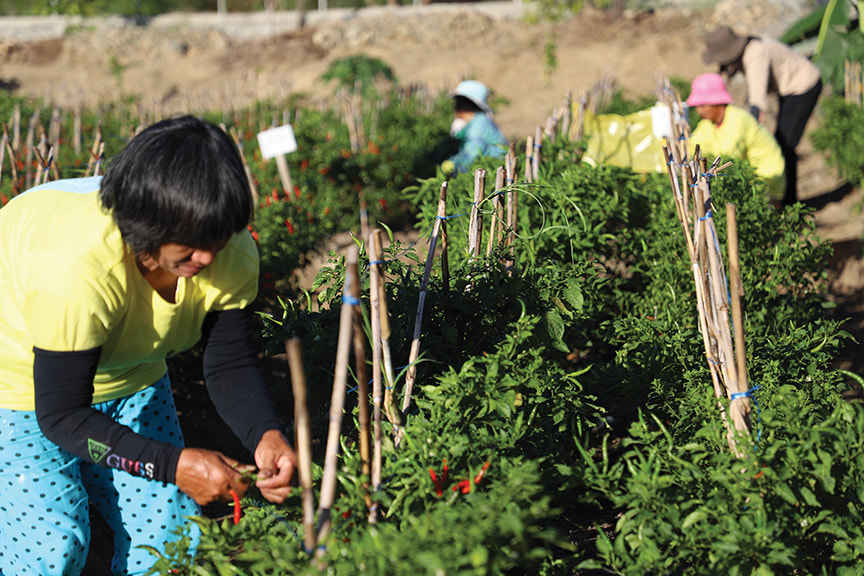
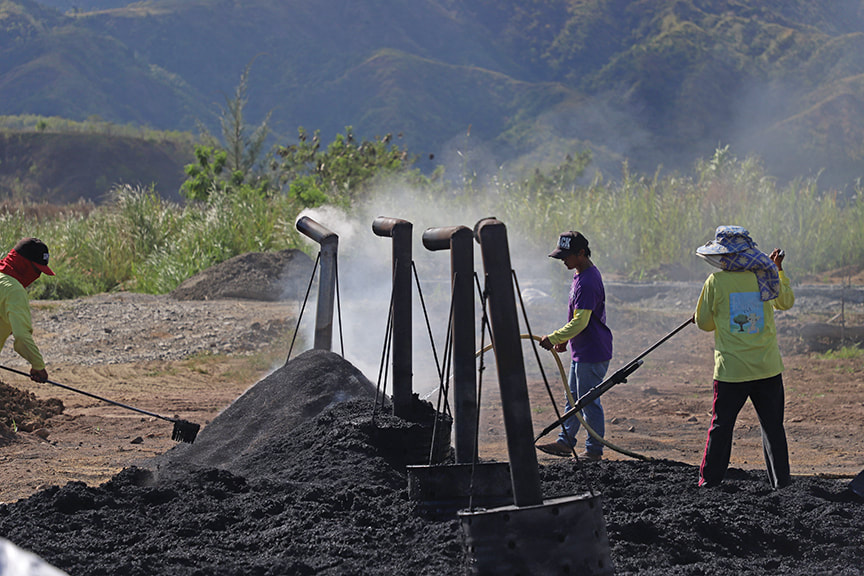
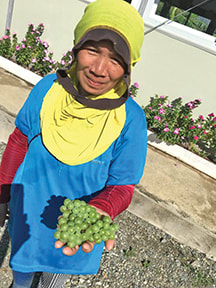
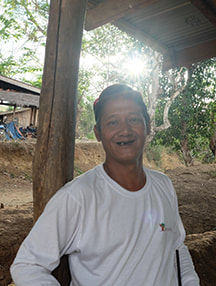
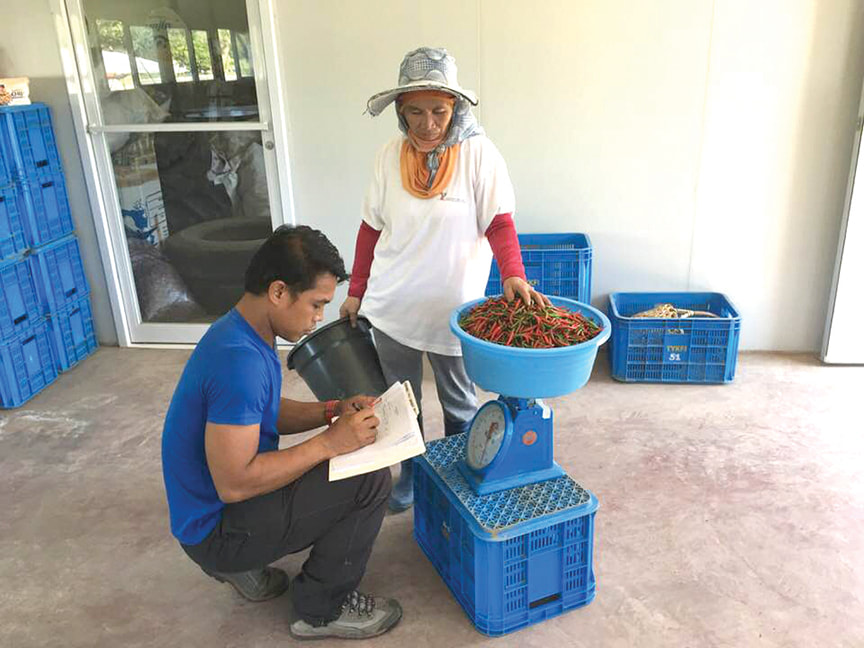
 RSS Feed
RSS Feed